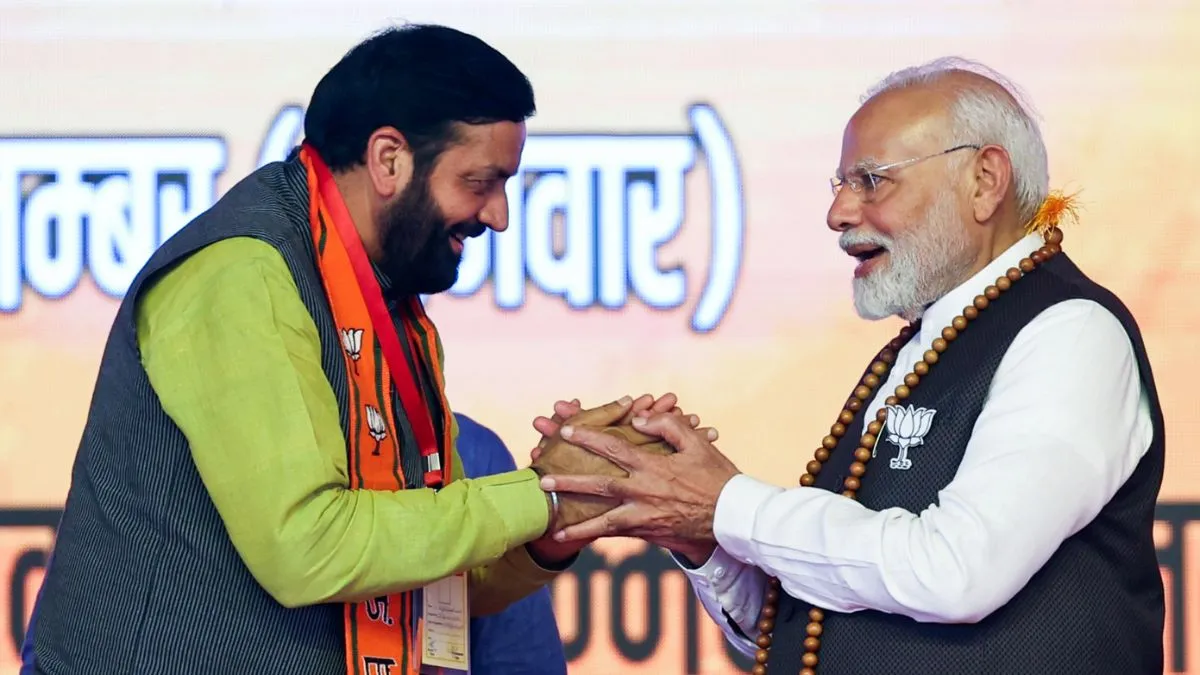Nayab Singh Saini’s ascension to the Chief Ministership of Haryana marks a significant moment in the state’s political landscape. His unanimous selection as the leader of the BJP legislative party, following a meeting attended by prominent figures like Union Home Minister Amit Shah and Madhya Pradesh Chief Minister Mohan Yadav, underscores the party’s unwavering support. This appointment, occurring after the BJP secured a third consecutive term in the state, represents a testament to the party’s enduring popularity and strategic maneuvering within Haryana’s political arena. The decision to forgo the appointment of a Deputy Chief Minister breaks with established convention, suggesting a focused approach to governance under Saini’s leadership. This unconventional move further highlights the BJP’s confidence in Saini’s ability to effectively manage the state’s affairs, a confidence bolstered by the party’s recent electoral success. The absence of a deputy further emphasizes the party’s reliance on Saini’s capabilities and a desire to streamline decision-making processes. This analysis delves into the significance of Saini’s appointment, the implications of the BJP’s strategic choices, and the potential ramifications for Haryana’s future.
Saini’s Second Term as Chief Minister
Saini’s appointment as Chief Minister represents his second tenure in the role, having previously served in the position. This reappointment signals the BJP’s continued faith in his leadership abilities and his proven track record in handling the state’s governance. His previous experience provides a solid foundation for tackling the challenges that lie ahead, offering continuity and a degree of familiarity with existing policy initiatives and bureaucratic processes.
Experience and Leadership
His past performance, both in this role and previous positions within the BJP, demonstrates experience crucial for addressing complex governance challenges. His familiarization with the needs of the population through his previous tenure eliminates much of the learning curve associated with entering office anew. Moreover, this selection suggests a degree of internal party unity and minimizes internal factional struggles for control. This is of particular importance in ensuring the state’s smooth and uninterrupted functioning in an atmosphere of political stability.
Implications of the BJP’s Strategy
The BJP’s decision to not appoint a Deputy Chief Minister is a strategic move that may streamline governance and reduce the potential for conflicting power dynamics within the executive branch. The potential drawback of this approach however must also be carefully considered. This single point of leadership also presents significant opportunity for swift implementation of policies and decisive action on matters affecting Haryana. But the burden and the responsibility placed on the single figure in charge also necessitates a vast support network, clear policy, effective communication and sufficient decision-making support mechanism.
The BJP’s Third Consecutive Term
The BJP’s achievement of a third consecutive term in Haryana is a significant political accomplishment. This underscores the party’s deep understanding of the needs and concerns of the electorate. It showcases not only effective party management and internal consistency but equally strong ability in appealing to voter bases of vastly different demographics. This sustained electoral dominance has allowed for a consistent political vision and minimizes disruptions that might affect government priorities and objectives.
Reasons for Electoral Success
This sustained political popularity indicates a long term understanding of policy needs based on community inputs which have resulted in sustained and broad based growth throughout Haryana. The combination of effective governance and electoral strength presents the opportunity to focus on the future trajectory of the state without worrying about short-term survival. The long-term strategic positioning, and adaptability to current circumstances and local sensitivities contribute to their strong hold on power.
Implications for Governance
Their established roots in the local ecosystem and sustained connection with the common citizen ensures policies implemented are responsive and relevant. Moreover this extended period in government gives time to test existing strategies and makes room for experimentation and implementation of new progressive ideas which address future concerns in advance. The third term enables the realization of long-term developmental objectives and consolidates the achievements of past terms, ensuring consistency in policy implementation.
The Role of National Leadership
The participation of Union Home Minister Amit Shah and the upcoming meeting called by Prime Minister Narendra Modi underlines the significance attached to Haryana’s governance at the national level. This emphasizes the role that Haryana plays within the larger framework of national policy and political strategy. The collaboration strengthens both the regional and national government positions and allows seamless communication and synchronization between local goals and national level agendas. Furthermore, this collaboration aids in securing effective support and prioritization of national interests.
National-State Coordination
The active involvement of national-level leaders ensures proper coordination between the central government and the state government. This interoperability will facilitate streamlined information flow and smoother interactions in dealing with issues affecting the country as a whole. This integrated approach offers optimal resource allocation between different government departments, creating a positive chain effect at all administrative levels.
Implications for Future Elections
The BJP’s strong performance in Haryana will be viewed as a positive sign ahead of the forthcoming elections in states such as Maharashtra and Jharkhand. It showcases a success story the party may build upon in their electoral campaigning and can present as a successful model for replication elsewhere. This positive feedback loop ensures the party can focus resources and efforts where the political outcomes are predicted to be strong, thereby optimizing the use of available resources. The significance of the state election therefore extend beyond regional lines; the result is carefully examined by the party to understand electoral success and failures, informing future campaigns.
Takeaway Points
- Nayab Singh Saini’s second term as Chief Minister signifies continuity and stability in Haryana’s governance.
- The BJP’s third consecutive term highlights their sustained popularity and effective governance.
- The absence of a Deputy Chief Minister indicates a streamlined approach to governance.
- The involvement of national leadership underscores the importance of Haryana within the national political landscape.




